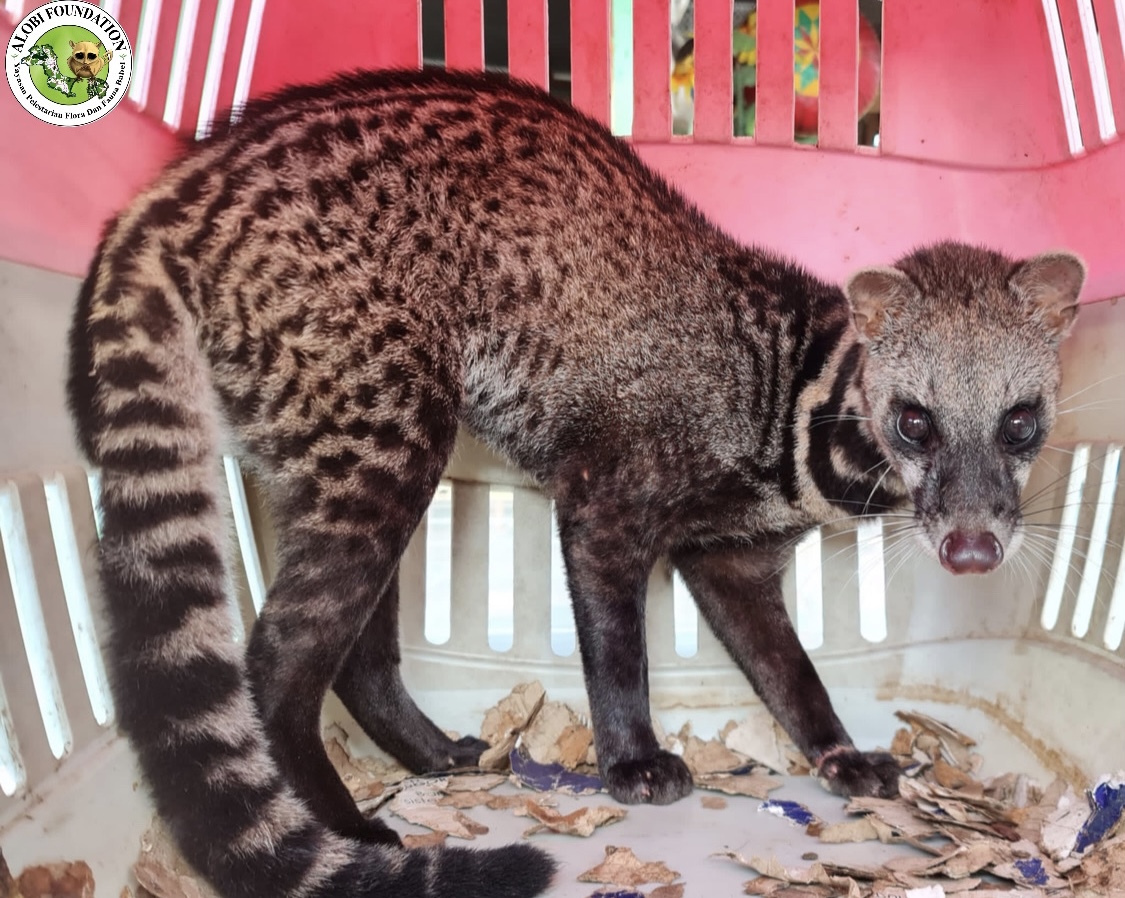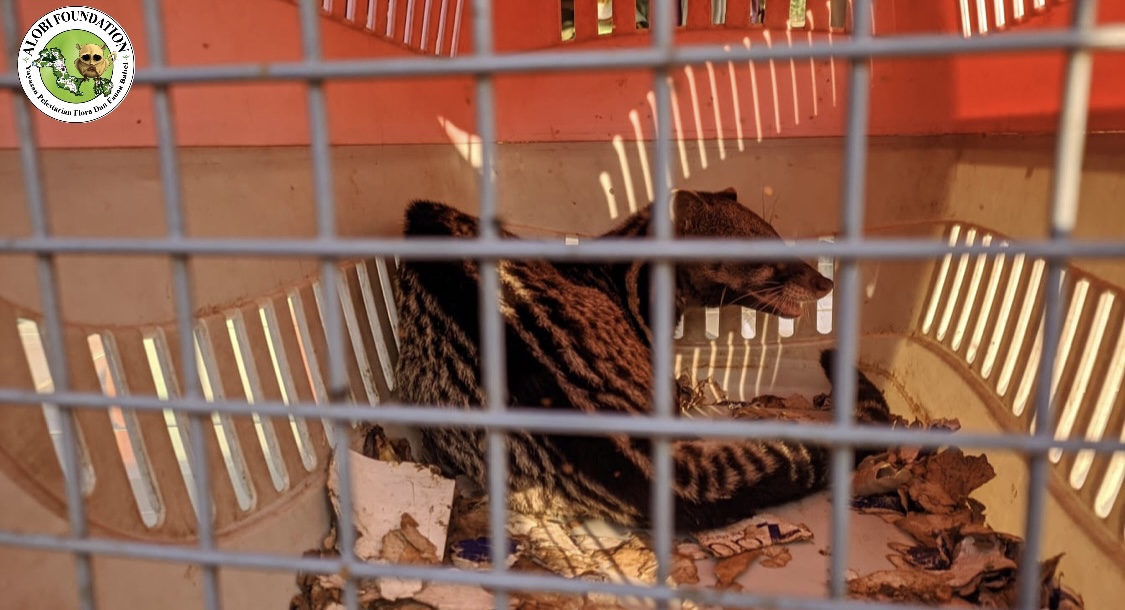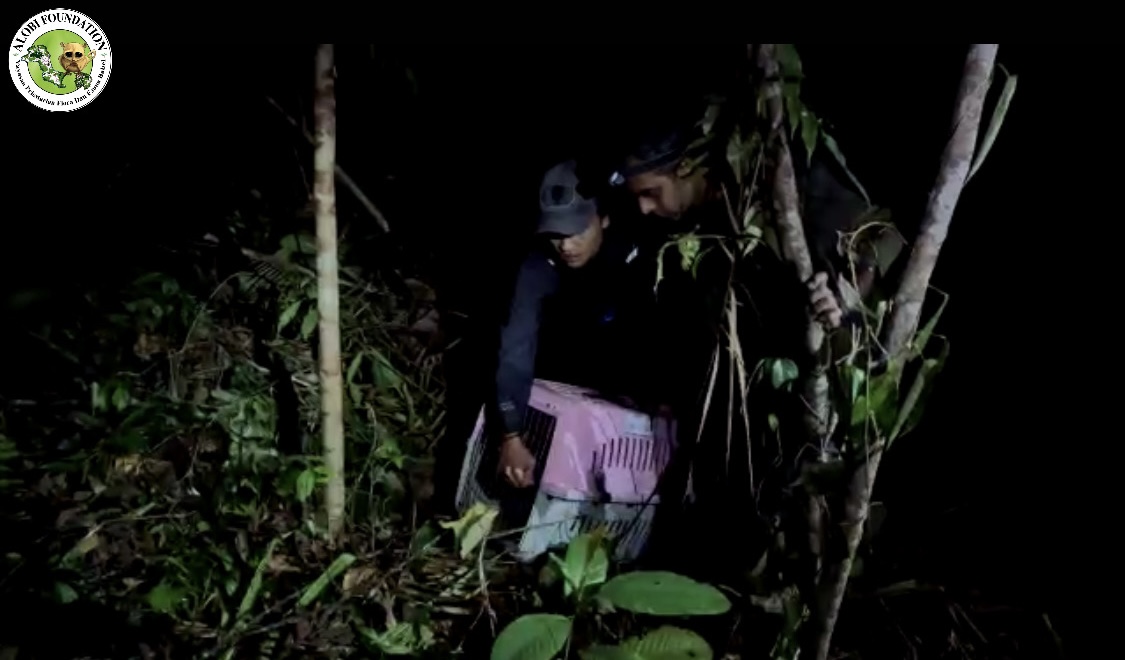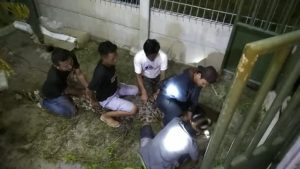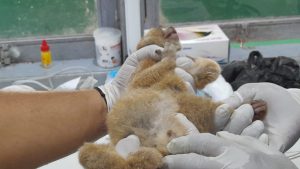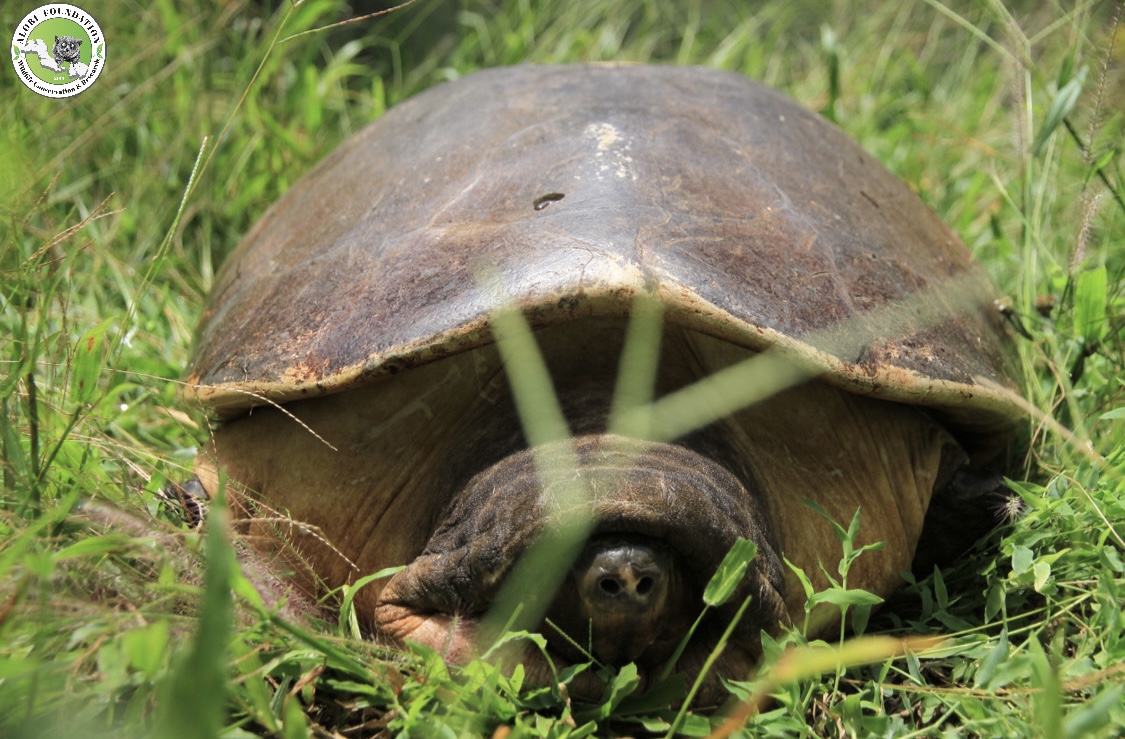On Sunday morning, April 9, 2023, Alobi Foundation received a report from the public regarding the presence of a Tenggalung civet entering a residential area. Responding to the report, Alobi Foundation Team immediately went to the location to carry out evacuation steps and health checks.
Tenggalung civet which is also known as Malaya Tenggalung has the Latin name Viverra tangalunga which belongs to the Viverridae family. Tenggalung civet is included in the IUCN (International Union for Conservation of Nature) list classified as an animal with the Least Concern status. Although these animals are native to Indonesia, they can also be found in the Philippines and Malaysia. Tenggalung civet is considered one of the most easily distinguished civets, with its dark legs and grayish fur with black spots along its body. This species lives at night and prefers to hunt in the dark. As an omnivorous species, Tenggalung Civet eats invertebrates and small vertebrates, including insects, frogs, rodents, lizards, and small snakes. These animals also eat fruits, eggs, and sometimes roots.
Tenggalung civet which was successfully evacuated by Alobi Foundation was then brought to the PPS Alobi Babel, Kampoeng Reklamasi Timah Air Jangkang for a further medical check-up by Alobi Veterinarians. The examination was carried out to see the overall health condition of the Tenggalung civet. Examinations carried out showed good results, in which the tiger civet was stated to be 100% in good health and would be released into its habitat on the same day.
At around 20.00 WIB, Alobi Foundation Team together with BKSDA Sumsel and Abdul Hakim from Manday Zoo Singapore then released 1 Tenggalung civet individual to its habitat in a protected forest area on Bangka Island. This release continues to be carried out by Alobi Foundation for animals originating from conflicts, confiscations, community surrenders, natural disasters, isolated animals, injured animals, conservation organizations, or captive breeding institutions that are considered capable of surviving in their natural habitat. The purpose of this release is to preserve protected animals and as an effort to restore the balance of the ecosystem.
We hope that through this activity, Alobi Foundation will be able to inspire and increase the awareness of all parties to be involved in efforts to save and preserve wild animals.
Greetings Conservation!
Writer : Trisna Rizky Martiyani, Langka Sani
Source : IUCN Red List

